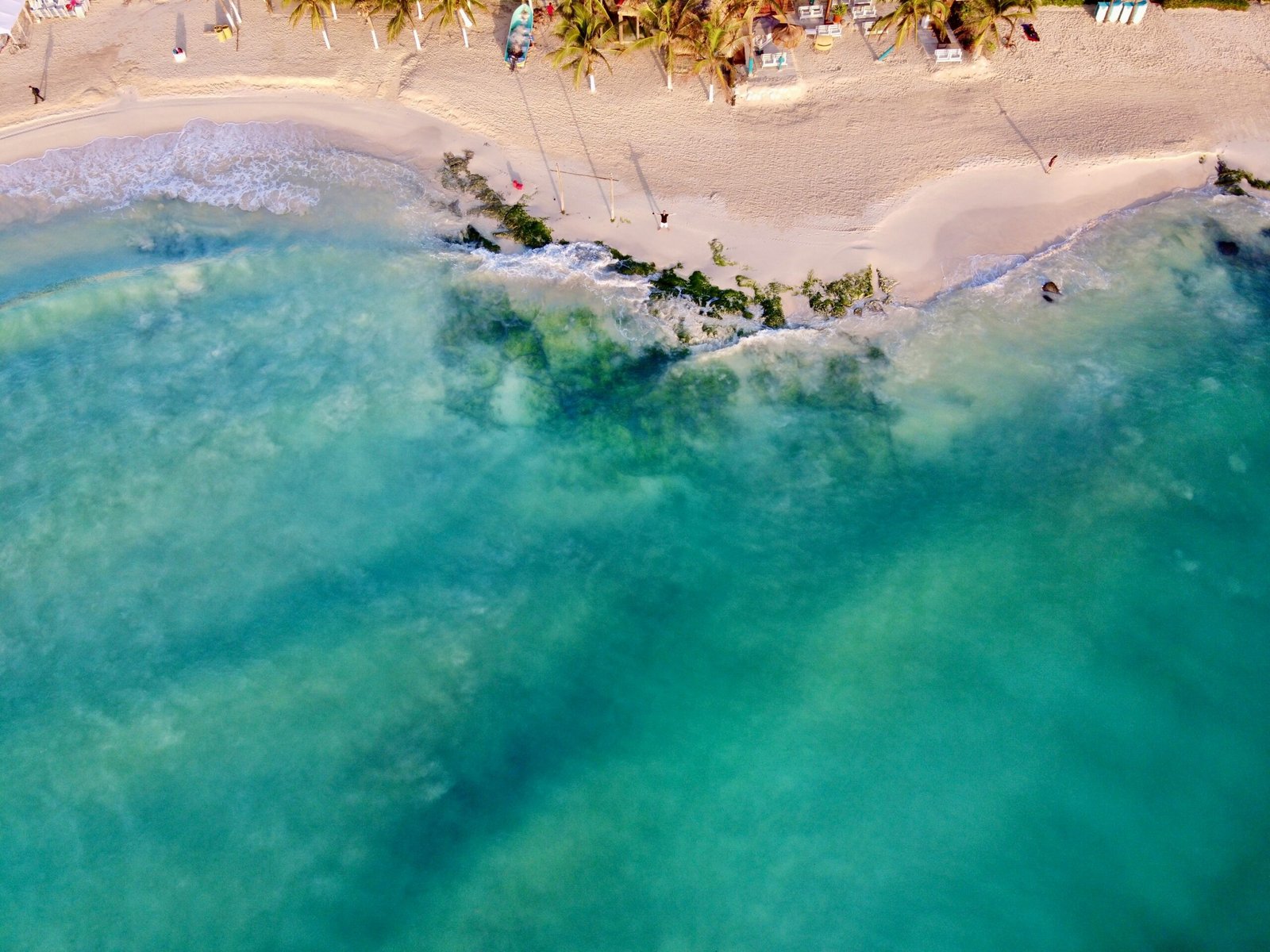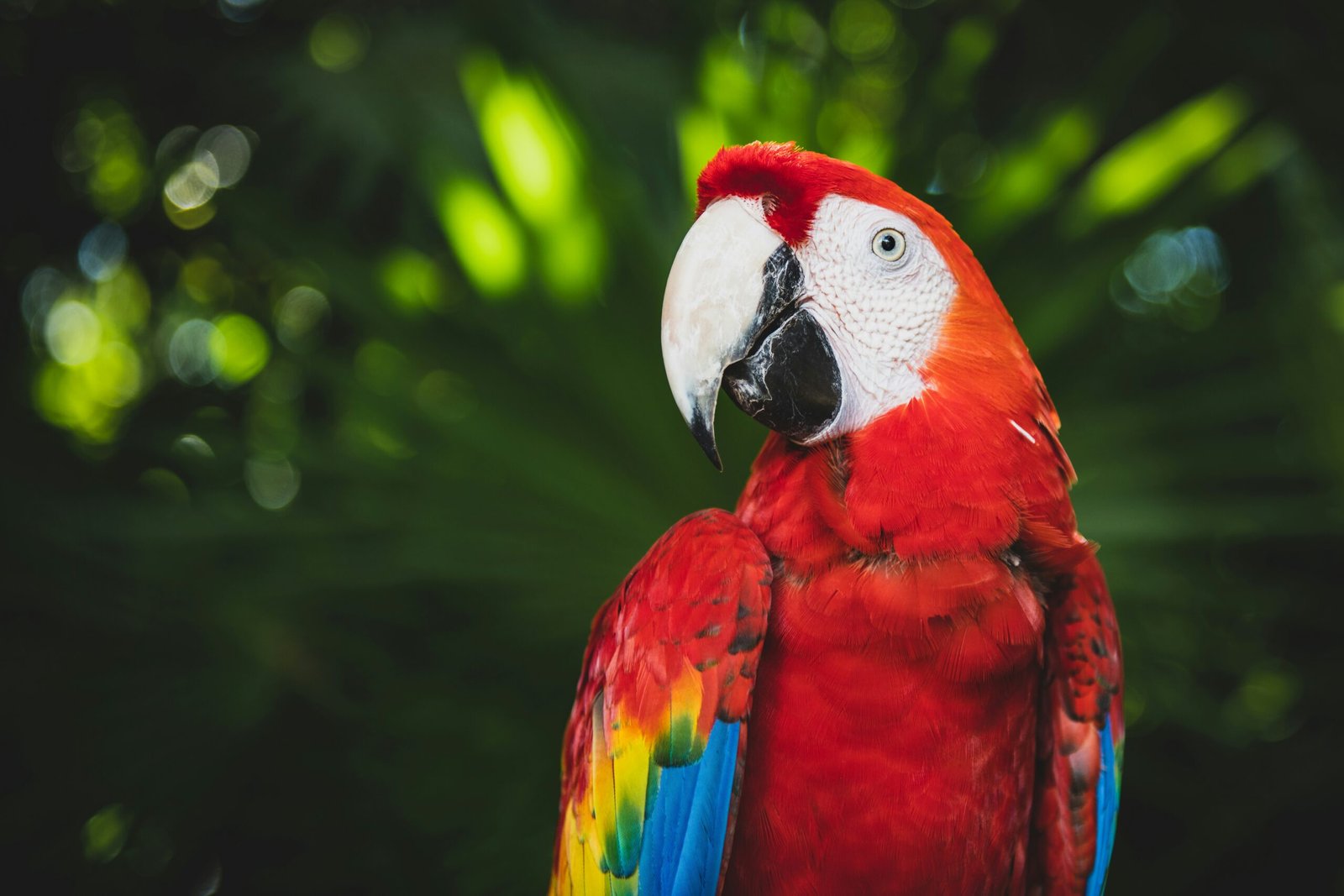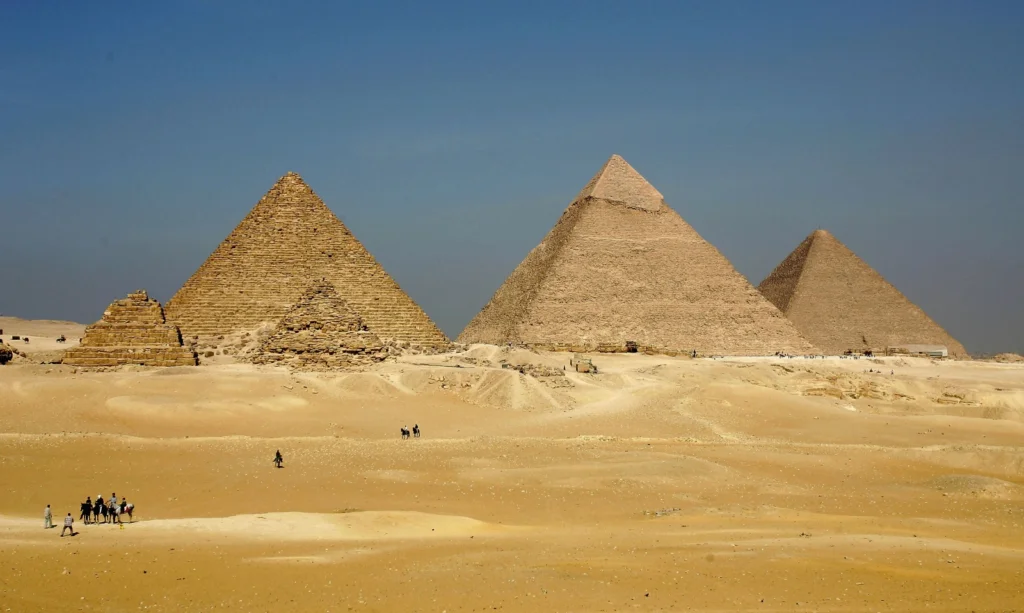
Are you planning a trip to Egypt? With its rich history, stunning landscapes, and fascinating culture, Egypt is a destination that should be on every traveler’s bucket list. However, before you embark on your adventure, there are a few things you need to know to ensure a smooth and enjoyable trip. In this article, we will provide you with 20 essential tips and insights to help you make the most of your visit to Egypt.
A trip to Egypt is a captivating journey through the remnants of an ancient civilization and the country’s rich cultural heritage. Exploring the majestic pyramids of Giza, such as those of Khufu, Khafre, and Menkaure, immerses travelers in an aura of mystery and awe before the architectural grandeur that has endured through the centuries. The banks of the River Nile offer a unique experience, with leisurely cruises revealing breathtaking landscapes and ancient cities like Luxor and Aswan, brimming with magnificent temples, tombs, and historical relics. Egypt also enchants with its vibrant markets, such as Cairo’s Khan El Khalili, where exotic scents, vibrant colors, and the authenticity of local trade provide insight into daily life and the country’s rich cultural tapestry.
Venturing into archaeological sites like the Valley of the Kings and the Temple of Karnak transports visitors to bygone eras, witnessing the grandeur of a civilization that influenced global history and art. The warm hospitality of the Egyptians, coupled with delicious cuisine showcasing unique flavors such as falafel, kebabs, and pita bread, completes the sensory experience, making a trip to Egypt an unforgettable journey of cultural and historical discoveries.
1. Research and Plan Ahead
Before you go, it’s important to do your research and plan your itinerary. Egypt offers a wide range of attractions, from the iconic pyramids of Giza to the beautiful beaches of the Red Sea. Decide which places you want to visit and make a list of must-see attractions.
2. Check Travel Advisories
Stay updated on the latest travel advisories for Egypt. While the country is generally safe for tourists, it’s always a good idea to check for any potential risks or warnings before you go.

3. Obtain the Necessary Visas
Make sure you have the appropriate visas for your trip. Most visitors can obtain a tourist visa upon arrival at the airport, but it’s best to check the requirements beforehand.
-
Tourist Visa:
- Most travelers planning a short-term stay in Egypt for tourism purposes usually require a visa.
- Tourists can obtain a visa before the trip at an Egyptian embassy or consulate in their home country.
- Some travelers may also be able to obtain a visa upon arrival in Egypt.
-
Visa on Arrival:
- Citizens of some countries may obtain a visa upon arrival at the airport. This visa is usually valid for a specified period.
-
E-Visa:
- Egypt has implemented an electronic visa system that allows travelers to apply for a visa online before their trip. This method can be convenient to avoid queues upon arrival.
-
Business or Work Visa:
- Business or work-related trips may require specific types of visas, and requirements may vary.
-
Student Visa:
- Foreign students intending to study in Egypt usually need a student visa, which can be obtained with the assistance of the Egyptian educational institution.
It is always crucial to check the latest and specific information for your country of origin and the purpose of your trip. Contact the nearest Egyptian embassy or consulate for accurate guidance on visa requirements and updated procedures.

4. Pack Sensibly
When packing for Egypt, consider the weather and the activities you plan to engage in. Lightweight and breathable clothing is recommended, especially during the hot summer months. Don’t forget essentials such as sunscreen, a hat, and comfortable walking shoes.
The most recommended months to travel to Egypt are usually during spring (March to April) and autumn (October to November). During these intermediate seasons, the weather is milder, providing more pleasant temperatures for exploring the country’s attractions. Here are some reasons to consider these periods:
-
Moderate Temperatures: During spring and autumn, temperatures are generally milder compared to the extremes of summer and winter. This provides pleasant weather conditions for outdoor activities and visits to tourist sites.
-
Avoiding Extreme Heat: Summer months (May to September) can be extremely hot in Egypt, especially in southern regions like Luxor and Aswan, with temperatures often exceeding 40°C. Traveling during spring or autumn helps avoid the intense heat.
-
Ideal Conditions for Cultural Tours: The milder temperatures during spring and autumn make exploring archaeological sites and monuments more comfortable. The intermediate months also offer gentler evenings.
-
Off-Peak Tourism Season: While the high tourist season in Egypt is during winter, spring and autumn are considered shoulder months with lower tourist demand. This may result in more affordable prices and a quieter travel experience.
-
Vegetation Blooming: During spring, some desert areas may experience the blooming of vegetation after winter rains, providing unique and beautiful landscapes.
While spring and autumn are generally considered the best times to visit Egypt, specific conditions can vary. It is always advisable to check weather forecasts and specific travel conditions for the planned period before embarking on the journey.
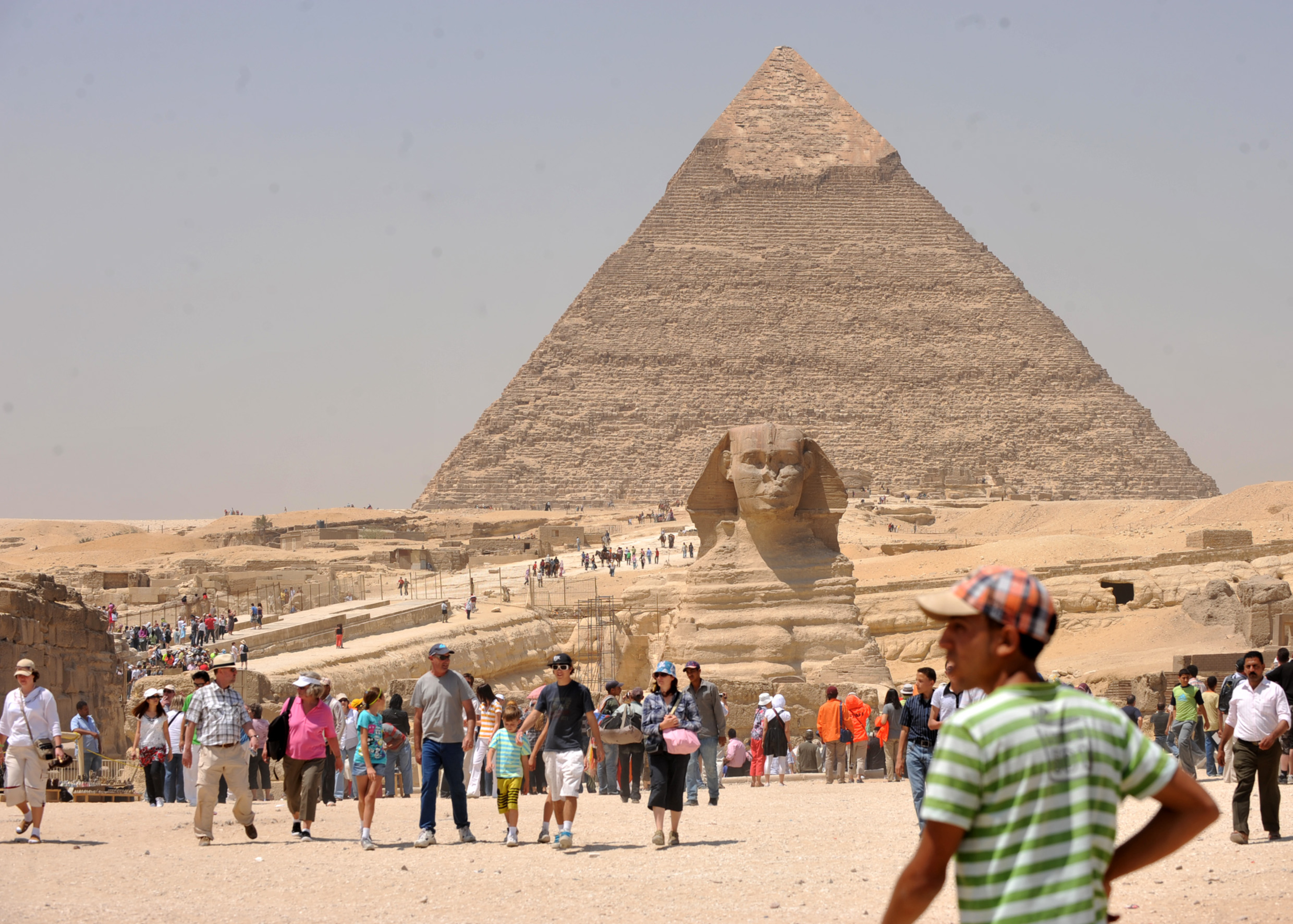
5. Respect the Local Culture
When traveling to Egypt, it is crucial to adopt a respectful and culturally sensitive behavior. When interacting with Egyptians, greeting people with a friendly “As-salamu alaykum” (peace be upon you) demonstrates courtesy. Dressing modestly, especially when visiting religious sites, is essential to adhere to cultural norms. Avoid overly revealing clothing, and be mindful that in more conservative areas, such as villages and traditional neighborhoods, cultural norms may be stricter.
Moreover, when taking photographs, always ask for permission before capturing images of people or sensitive locations. It is vital to respect the rules and restrictions specific to archaeological sites and museums. Showing an interest in the local culture, such as trying Egyptian cuisine and participating in cultural events, can contribute to more enriching experiences. In summary, by adopting an attitude of respect, openness, and cultural awareness, travelers can fully enjoy the rich experience that Egypt has to offer.
6. Learn a Few Arabic Phrases
While many Egyptians speak English, learning a few basic Arabic phrases can go a long way in enhancing your travel experience. Simple greetings and thank yous will be appreciated by the locals.
In Arabic, which is the official language of Egypt, some common words and expressions of gratitude include:
-
Shukran (شكرًا): This is the basic word for “thank you” in Arabic.
-
Shukran Gazilan (شكرا جزيلاً): Means “thank you very much” or “thanks a lot.”
-
Barak Allah feek (بارك الله فيك): Literally translated as “May God bless you,” it is used to express gratitude.
-
Afwan (عفوا): This word means “you’re welcome” or “please.” It is used as a response when someone thanks you.
-
La shukran ala wajib (لا شكر على واجب): Means “no thanks necessary” and is a polite response to a thank you.
By using these words of gratitude in your daily interactions in Egypt, you will show respect for the local culture and the Arabic language.
7. Stay Hydrated
The Egyptian climate can be hot and dry, so it’s crucial to stay hydrated. Drink plenty of water and avoid excessive exposure to the sun, especially during the peak hours of the day.
Staying hydrated during a trip to Egypt, especially in hot climates, is crucial for well-being. Here are some tips to stay hydrated during your stay in Egypt:
-
Drink Water Regularly:
- Consume water regularly throughout the day, even if you’re not thirsty. In hot climates, it’s easy to become dehydrated quickly.
-
Carry a Water Bottle:
- Always have a reusable water bottle with you and refill it regularly. This is especially important when exploring tourist areas.
-
Avoid Dehydrating Drinks:
- Avoid excessive consumption of drinks that can cause dehydration, such as coffee and alcohol. Opt for water and isotonic beverages.
-
Consume High-Water Fruits and Vegetables:
- Include fruits and vegetables with high water content in your diet, such as watermelon, cucumber, and melon.
-
Use Sunscreen:
- Protect yourself from the sun by using sunscreen and appropriate clothing to avoid excessive heat exposure.
-
Avoid the Sun during Peak Hours:
- Avoid outdoor activities during the hottest hours of the day, typically in the early afternoon.
-
Seek Shade:
- When possible, seek shade to rest and cool down.
-
Be Aware of Dehydration Signs:
- Familiarize yourself with signs of dehydration, such as extreme thirst, dizziness, dry mouth, and dark urine.
-
Take Oral Rehydration Salts:
- In cases of mild dehydration, oral rehydration salts can help replenish electrolytes.
-
Consult a Healthcare Professional:
- If you experience severe dehydration symptoms, seek medical help immediately.
Remember that hydration needs can vary from person to person, so adjust your water intake according to the weather conditions and your daily activities. Pay attention to your body and take a proactive approach to ensure good hydration during your trip to Egypt.
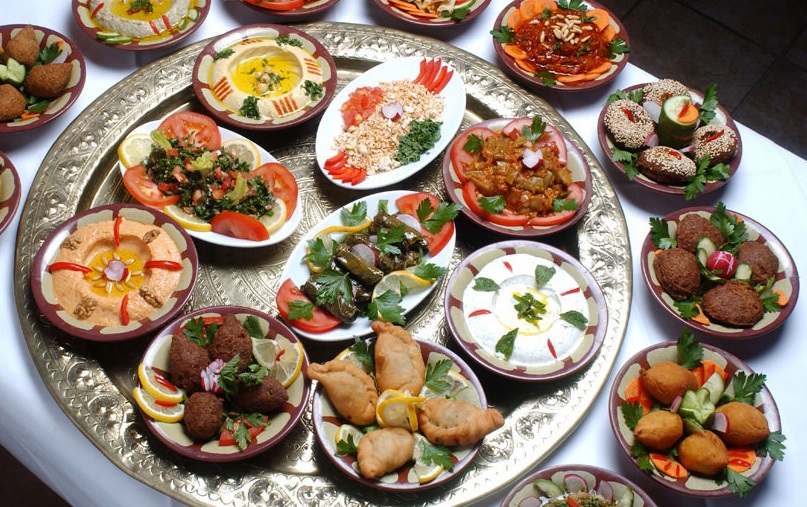
8. Be Cautious with Street Food
Egypt is known for its delicious street food, but it’s important to be cautious when trying new dishes. Stick to busy stalls with a high turnover of customers to ensure the freshness and quality of the food.
Egyptian cuisine is rich and diverse, reflecting the country’s history and geography. Here are some common foods in Egypt that you can try during your visit:
-
Koshari (كشري): A popular Egyptian dish made with lentils, rice, pasta, fried onions, and tomato sauce.
-
Falafel (طعمية): Fried patties made primarily from chickpeas or fava beans, served in Arabic bread with salad and sauces.
-
Molokhia (ملوخية): A thick soup made with okra or jute, often served with rice or bread.
-
Ful Medames (فول): Slow-cooked fava beans seasoned with garlic, olive oil, commonly consumed for breakfast.
-
Taameya (تعمية): An Egyptian version of falafel, primarily made with chickpeas.
-
Shawarma (شاورما): Thin slices of grilled meat, usually served in Arabic bread with sauces and vegetables.
-
Hawawshi (حواوشي): A kind of sandwich filled with seasoned minced meat and baked.
-
Moussaka (مسقعة): Not to be confused with Greek moussaka; this Egyptian version is an eggplant casserole with meat, tomatoes, and spices.
-
Aish Baladi (عيش بلدي): Traditional Arabic bread, often an essential part of Egyptian meals.
-
Mahshi (محشي): Vegetables such as grape leaves, eggplants, or zucchinis stuffed with a mixture of rice, meat, and spices.
-
Umm Ali (أم علي): A sweet bread pudding dessert with milk, nuts, and raisins, often referred to as “Egyptian pudding.”
These dishes provide a taste of Egypt’s rich culinary tradition, where local flavors and ingredients play a significant role. Exploring Egyptian cuisine will give you the opportunity to experience a unique blend of aromas and flavors
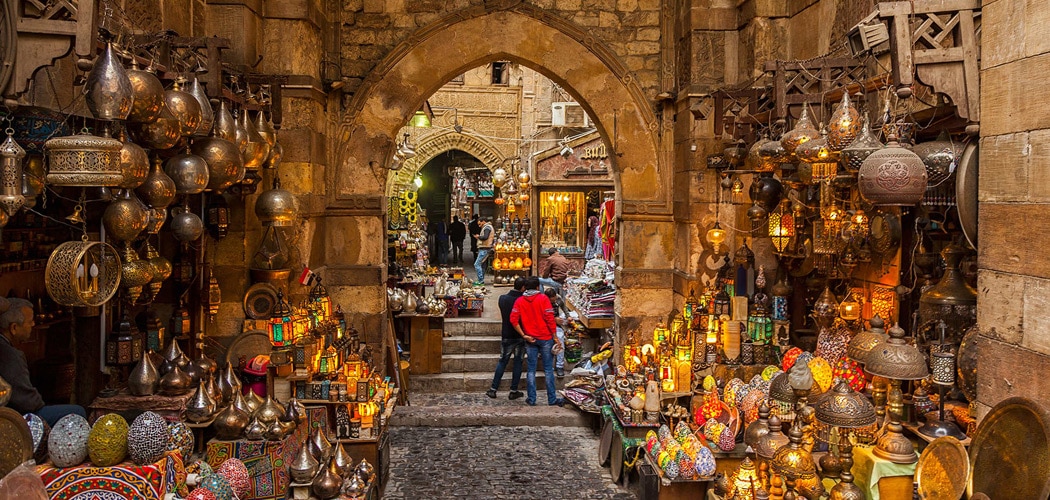
9. Bargain at the Markets
When shopping at local markets, bargaining is a common practice. Don’t be afraid to negotiate the price, but do so respectfully and with a smile. It’s all part of the experience!
10. Visit the Pyramids of Giza
No trip to Egypt is complete without visiting the iconic pyramids of Giza. Marvel at the Great Pyramid of Khufu, explore the ancient tombs, and take a camel ride around the site.
11. Explore Luxor and the Valley of the Kings
Luxor is often referred to as an open-air museum due to its wealth of ancient temples and archaeological sites. Don’t miss the opportunity to visit the Valley of the Kings, where the tombs of pharaohs are located.
12. Cruise the Nile River
A Nile River cruise is a fantastic way to experience the beauty of Egypt. Relax on a luxurious boat, visit ancient temples along the riverbanks, and witness the daily life of local communities.
13. Discover the Red Sea
If you’re a fan of water activities, head to the Red Sea coast. Enjoy snorkeling or diving in the crystal-clear waters, and explore the vibrant marine life and coral reefs.
14. Experience Traditional Egyptian Cuisine
Indulge in the flavors of Egypt by trying traditional dishes such as koshari, falafel, and shawarma. Don’t forget to sample the famous Egyptian tea and hibiscus juice.
15. Marvel at the Temples of Abu Simbel
Located in southern Egypt, the temples of Abu Simbel are a UNESCO World Heritage Site. Admire the colossal statues of Ramses II and explore the intricately carved interiors of these ancient wonders.
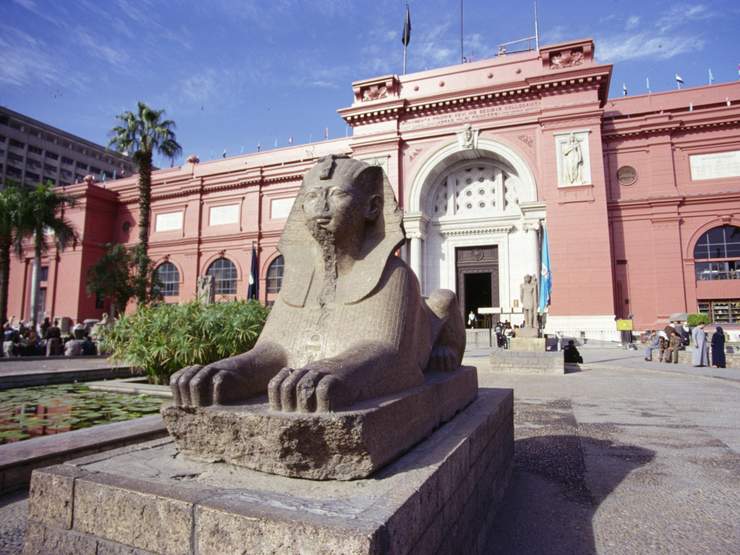
16. Visit the Egyptian Museum in Cairo
Explore the treasures of ancient Egypt at the Egyptian Museum in Cairo. Marvel at the golden mask of Tutankhamun and discover thousands of artifacts that tell the story of this ancient civilization.
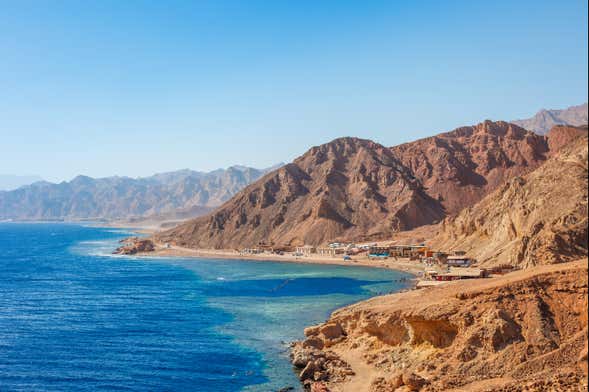
17. Take a Desert Safari
Embark on a desert safari and experience the beauty of Egypt’s vast deserts. Ride a camel or a quad bike, watch a mesmerizing sunset over the dunes, and spend a night under the stars in a Bedouin camp.
18. Respect the Ancient Sites
When visiting ancient sites, such as temples and tombs, be mindful of the rules and regulations. Avoid touching or climbing on the ancient structures to preserve them for future generations.

19. Enjoy the Vibrant Nightlife
Egypt has a vibrant nightlife scene, especially in cities like Cairo and Sharm El Sheikh. Dance the night away at a trendy club, enjoy live music, or relax at a rooftop bar with stunning views of the city.
Cairo is the capital and largest city of Egypt, offering a fascinating blend of history, culture, and modern life.
Here are some features of the city:
-
Ancient History:
- Cairo has a rich historical heritage, with many notable ancient sites including the Giza Pyramids, the Sphinx, and the Citadel of Saladin.
-
Nile River:
- The Nile River runs through Cairo, providing a unique landscape and opportunities for boat trips and cruises.
-
Traditional Neighborhoods:
- Cairo features old and traditional neighborhoods such as Khan El Khalili, a bustling market known for its spice shops, crafts, and antiques.
-
Museums and Art:
- The city is home to several museums, including the Egyptian Museum displaying an extensive collection of ancient Egyptian artifacts, and the Museum of Islamic Art.
-
Nightlife:
- Cairo offers a vibrant nightlife with a variety of restaurants, cafes, bars, and entertainment venues.
-
Mosques and Churches:
- The city has a religious diversity with historic mosques like the Alabaster Mosque and Coptic churches, reflecting the coexistence of different religious communities.
-
Busy Traffic:
- Cairo is known for its bustling traffic with busy streets and a mix of vehicles, from cars to carriages and camels.
-
Contemporary Culture:
- Besides its rich historical heritage, Cairo is a contemporary cultural hub with art galleries, festivals, and cultural events.
-
Diverse Architecture:
- The city’s architecture is diverse, featuring modern buildings alongside historical structures and traditional residences.
-
Parks and Gardens:
- Cairo has parks and gardens like Al-Azhar Park and the Orman Botanical Garden, providing green spaces for residents and visitors.







